Some people make driving in Morocco appear scary, but it is actually one of the best ways to explore the country at your own pace. In general, driving in Morocco can be different than what you’re used to. While the basic rules are the same (stopping at red lights, letting pedestrians cross), they might not be followed as strictly. Be extra aware of scooters, bikes, and pedestrians who may cross the street anywhere, especially in busy cities like Marrakech and Casablanca.
Traffic can be busy, especially in the big cities, and drivers use their horns a lot. But don’t worry, the honking is just their way of communicating on the road. Overall, driving in Morocco isn’t as difficult as it might seem, and it can be a fun adventure.
Driving Culture in Morocco
Driving rules in Morocco are not very different than in the western countries, what is different is the way people follow them. Traffic signs look the same, but they are not always respected. Here are some important driving rules in Morocco:
- Pedestrian Crossings: Cars in Morocco don’t always stop for people at crosswalks, especially in big cities. People in Morocco often walk on the road, not on sidewalks. Be ready to honk your horn to warn them and watch out for animals too!
- Road lanes: Cars in Morocco, especially in Marrakech, drive in the middle of the road, between lines. To pass them, honk or flash your lights so they move. They might do this to give scooters more space.
- Turn signals: Drivers often turn without showing them, or even use the wrong signal. Just be careful!
- Honking: Morocco drivers love to honk! Honk means “watch out!”, “move over!”, or “I’m passing you!” on twisty roads. Everyone does it, so honk a little too!
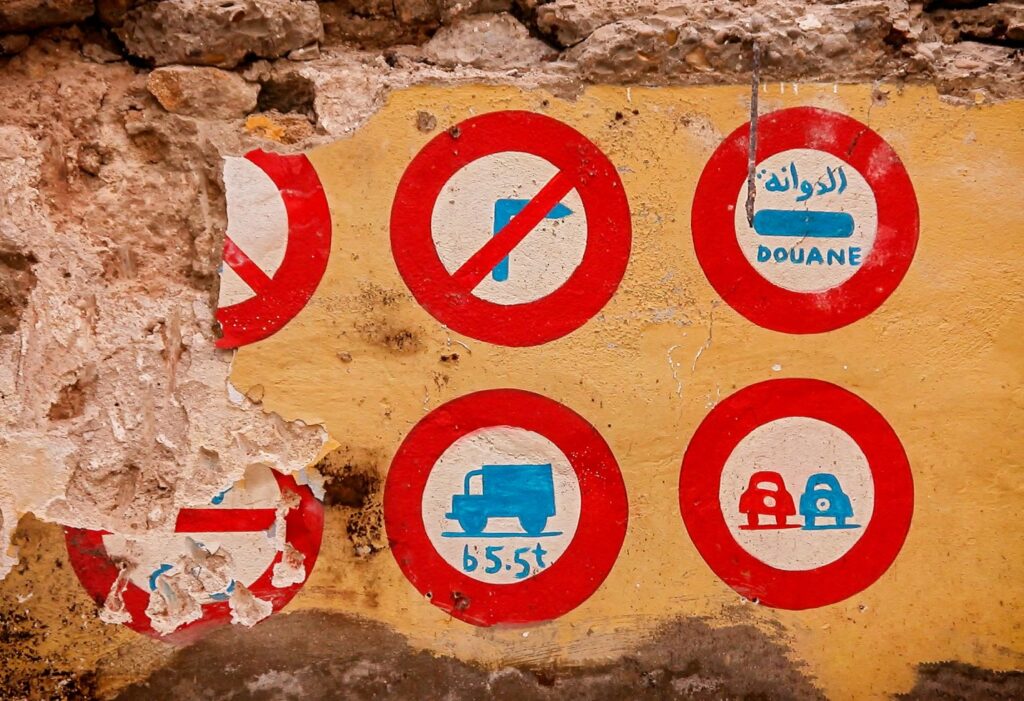
Does Morocco Have Good Roads?
Generally speaking, roads in Morocco are well-developed, making driving safer and more fun! There can still be traffic jams from trucks and construction, but highways are great and even mountain roads are nice.
When traveling between big cities, you can always choose the Highway. They cost a little money (like paying a small fee), but you can drive much faster than on regular roads. For instance, going from Marrakech to Casablanca is much quicker on the highway. You can pay cash or use a card at special booths when you enter the highway.
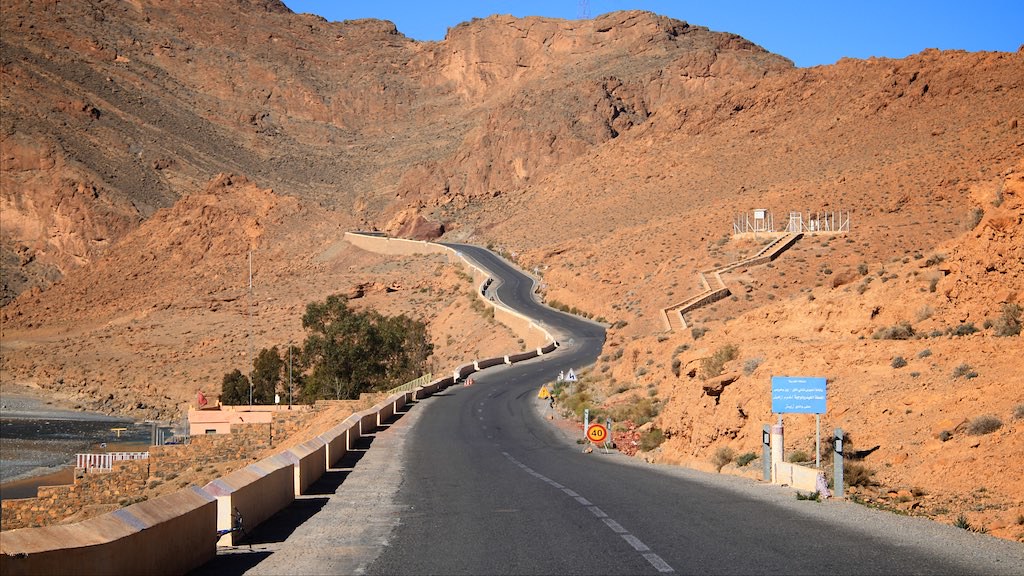
Fuel and Gas Stations in Morocco
Don’t worry about running out of gas in Morocco! There are gas stations everywhere, even in remote areas. Signs will often warn you when the next station is far away.
Unlike some countries, you don’t pump your own gas in Morocco. There will be someone to help you. Just tell them what kind of gas you need and how much you want to spend in Dirhams (the Moroccan money). It’s nice to give them a small tip for their help.
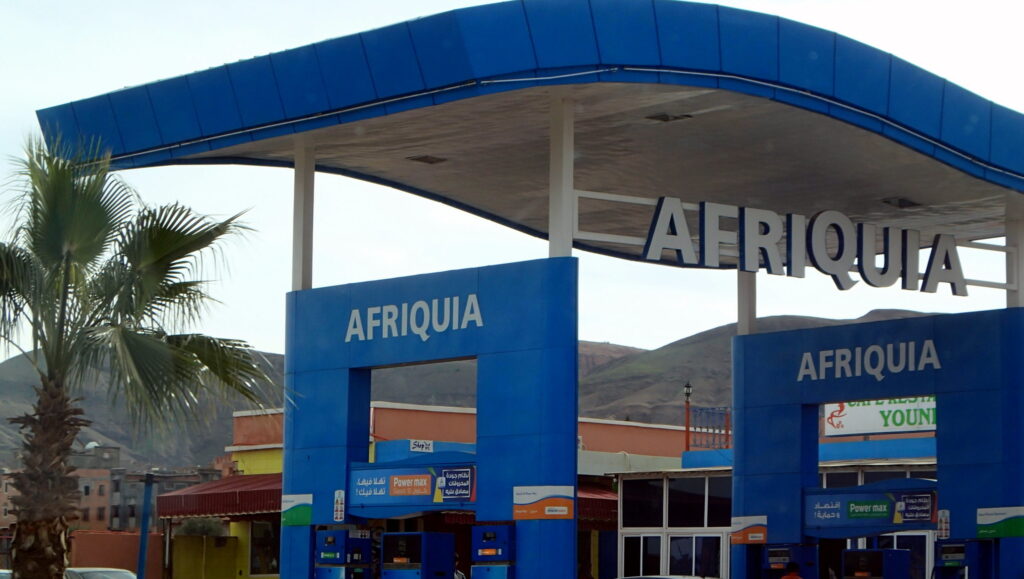
For the best gas and fewest car problems, look for stations with brands you know from home, like Total, BP, Shell, or Afriquia. Their gas is usually better quality than smaller stations.
Parking Your Car in Morocco
Tips for parking your car in Morocco:
- Look for people in bright usually yellow vests who can help you park and watch your car. They usually charge a small fee (3-5 Dirhams for daytime, 5-10 Dirhams at night).
- In beach towns or fancy places, parking might cost a bit more. It’s good to ask first.
- Big cities might have parking machines instead of people.
- Be nice to the parking helpers, especially if your parking spot is tight.
- In smaller towns, you might find free parking without anyone watching the cars.
- If you see a blue “P” sign, that means it’s a parking lot. Ask about the price before parking.
- Sometimes, helpers might ask for your car keys to move it around when the parking is full. If you don’t feel comfortable with that, find another spot.
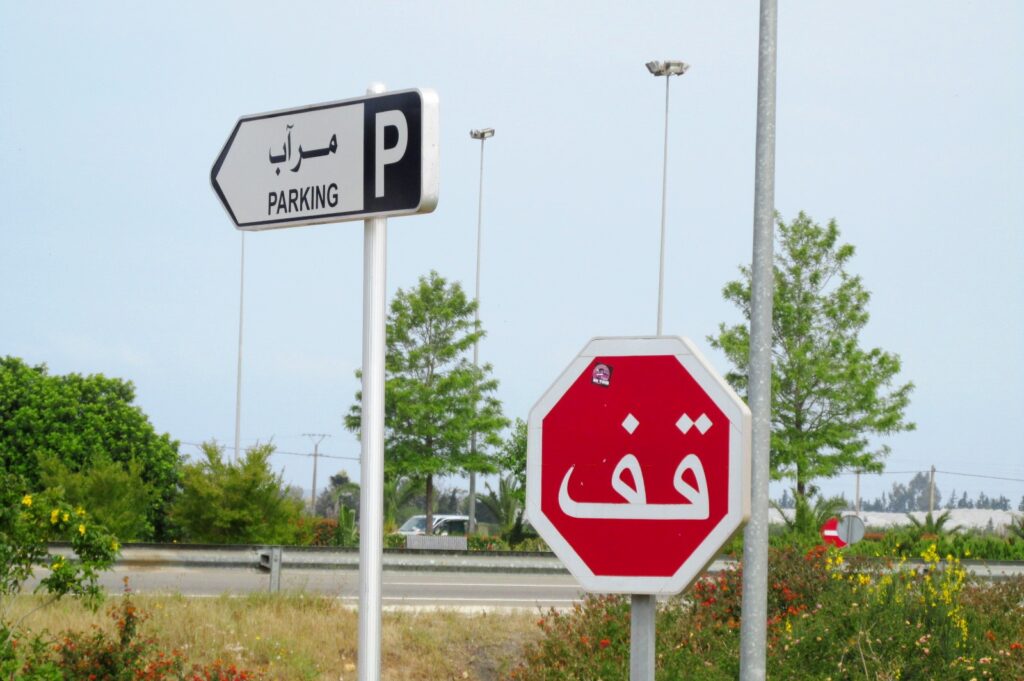
Driving Ducoments and Speed Limits in Morocco
Driving Documents in Morocco
Don’t forget to pack two important things when driving in Morocco: your passport and your driver’s license. If you’re from Europe, you don’t need a special license to drive here.
When you rent a car, they will give you some papers to keep with you: a car ownership document (called a “carte grise”), the contract (in the case of renting a car), and insurance papers. Make sure your travel insurance covers you in Morocco, or get extra insurance when you rent the car to be safe.
Speed Limits in Morocco
- In cities: it is usually 60 km/h.
- Outside cities: it goes up to 100 km/h.
- On highways (called “Autoroutes”): it’s 120 km/h.
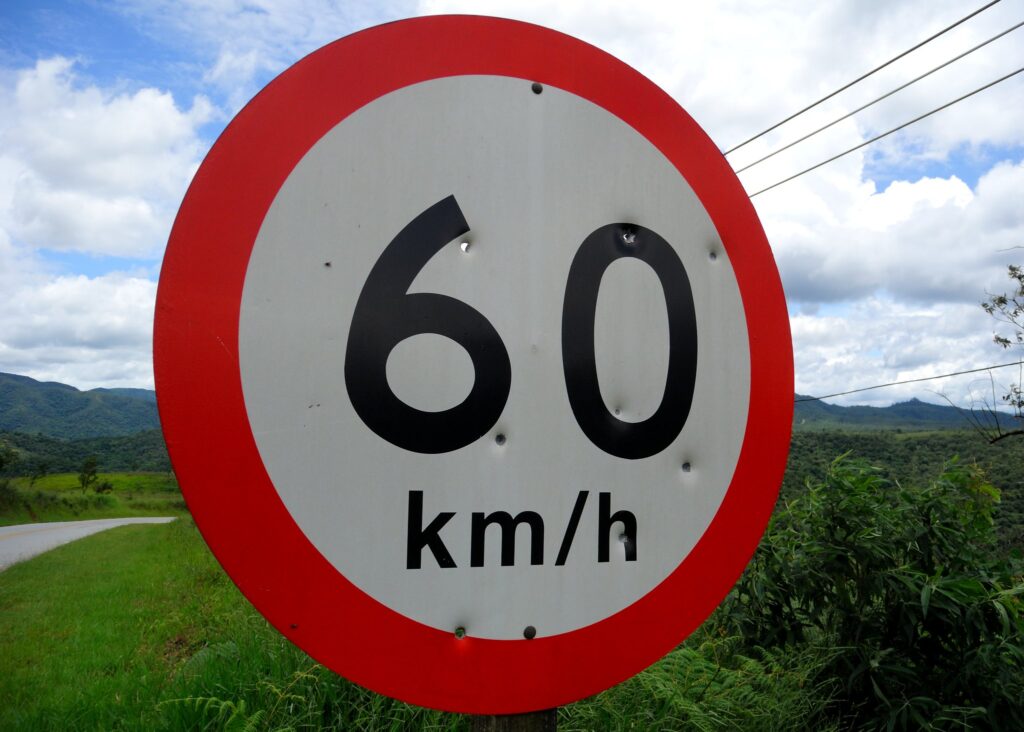
Important! The police use radar to catch speeders, so watch out for the speed limit signs and don’t go too fast to avoid fines.
Police in Morocco
Don’t be surprised to see lots of police in Morocco! They’re there to keep the roads safe. They often check cars at special stops, especially at city entrances, small towns, and big intersections. You might even see them in the middle of circles in the road (roundabouts).
Even though there are a lot of police, they’re usually nice and helpful. Tourists don’t usually get stopped for long at these checks. If you do make a small mistake while driving, the police will likely be understanding with tourists.
If you see a police check, just give a wave and a smile. This shows you respect their work and want to follow the rules. This way, you can relax and enjoy your trip knowing the police are there to help, not make trouble for you.
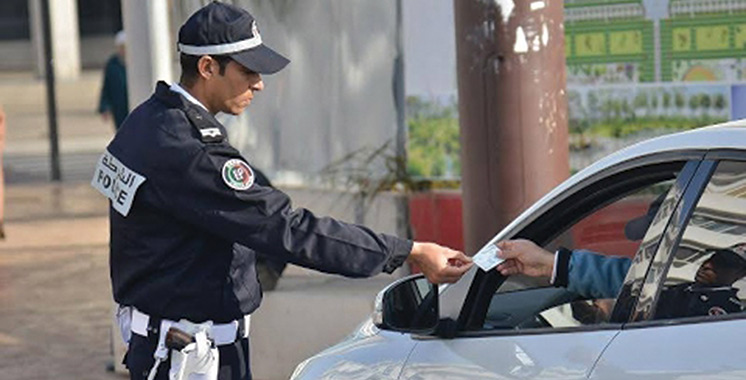
8 Essential Things to Pack When Driving in Morocco
- Water and Snacks: Driving under the Moroccan sun can be dehydrating. Carry plenty of water and some easy-to-eat snacks to keep your energy up during long drives.
- Toilet Paper: It’s a good idea to bring a spare roll of toilet paper. You might find that some petrol stations or roadside cafes don’t have any available.
- Navigation Tools: While a GPS is invaluable, make sure it has the latest updates. Google Maps usually works well in Morocco, but it’s smart to also bring a physical map just in case.
- First Aid Kit: Always have a basic first aid kit in your car. It should include items like bandages, antiseptic wipes, and pain relievers.
- Sunglasses: Protect your eyes from the intense sun with a good pair of sunglasses.
- Flashlight: Keep a flashlight handy. It’s useful for any unexpected situations, especially if you find yourself on the road after dark.
- Portable Phone Charger: Ensure your phone is always charged. A portable charger can be a lifesaver, especially when using your phone for maps and communication.
- Local Currency: Having some Moroccan Dirhams on hand is essential for tolls and small purchases. Not all places accept credit cards, especially in remote areas.
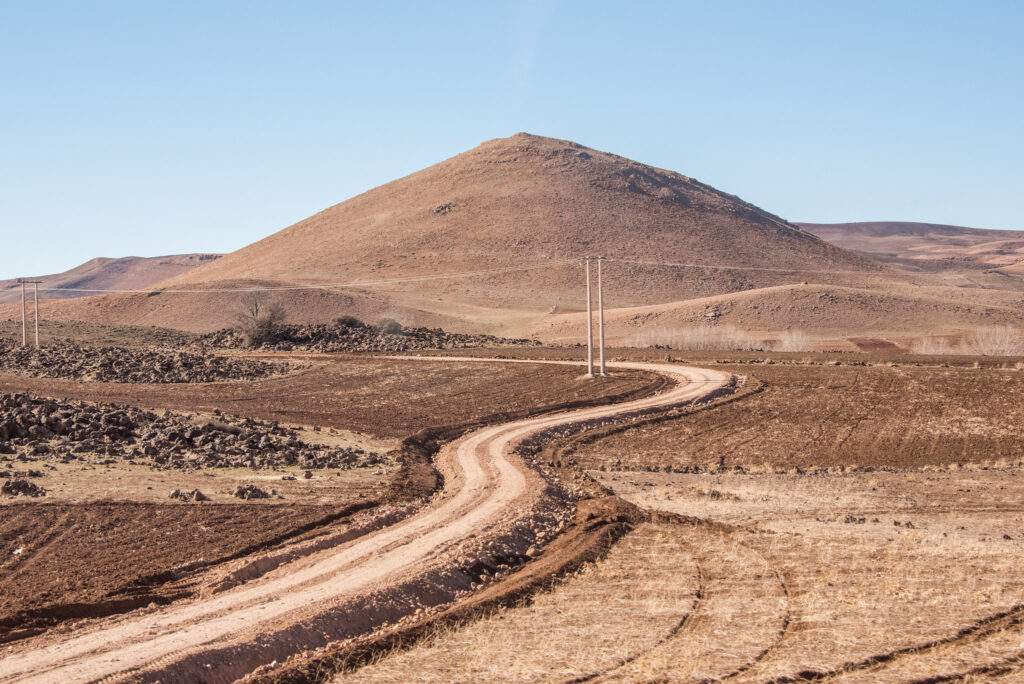
10 Useful Tips for Driving in Morocco
- Driving in Morocco can be full of surprises. Watch out for scooters, bicycles, and pedestrians who might appear suddenly or move unpredictably.
- Before you start your drive, make sure you know where you’re going. Road signs can sometimes be missing or hard to read, so it’s a good idea to have a map or GPS handy.
- Be ready for quick lane changes and unexpected moves by other drivers, especially at intersections. Driving cautiously can help you avoid mishaps.
- Many roads in Morocco aren’t well-lit at night, making it harder to see. To stay safe, it’s best to do your driving during the day.
- Before you hit the road, take a few minutes to check that your rental car is in good working order. This can save you from headaches later on.
- Drive on the right side of the road. It can be confusing about who gets to go first, so watch how other drivers act before you go.
- Marrakech and Casablanca have crazy traffic. Scooters zip around in Marrakech and Casablanca is known for jams and bold drivers.
- Be patient, watch out for what’s going on around you, and be ready for anything to have a safe and fun drive in Morocco!
- Watch out for scooters, bikes, and even people who might walk into the street without looking! Be extra careful in the countryside where there might be animals on the road too.
- In tourist areas, some people might try to stop you from selling you tours or other things. Be polite but firm and keep driving if you’re not interested.
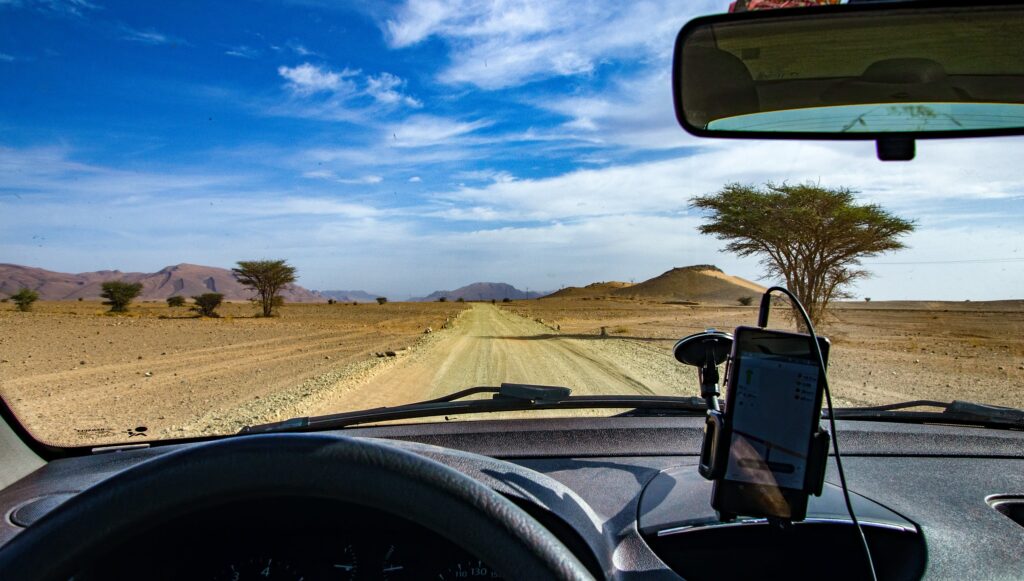

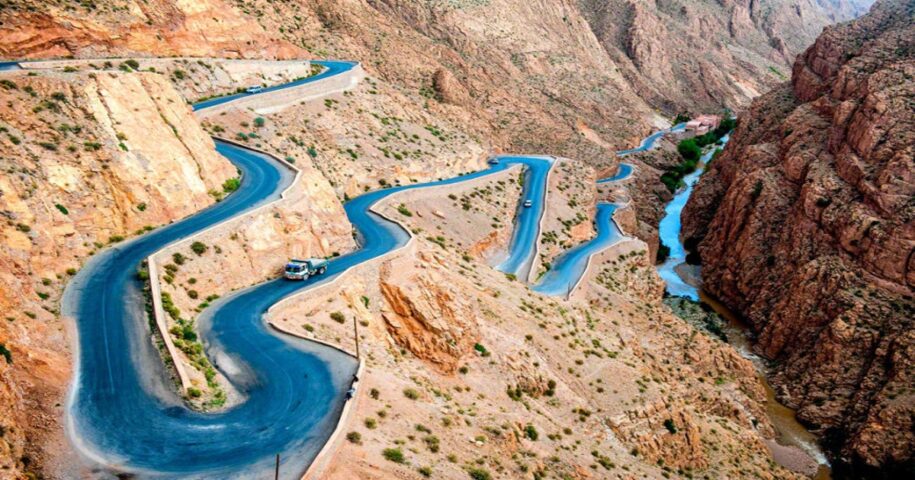
Leave a Reply